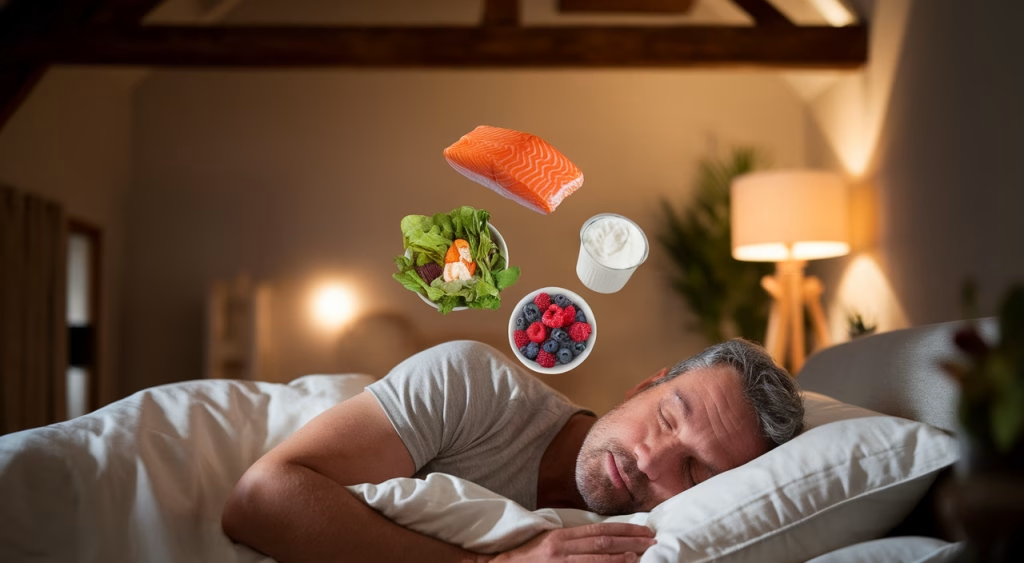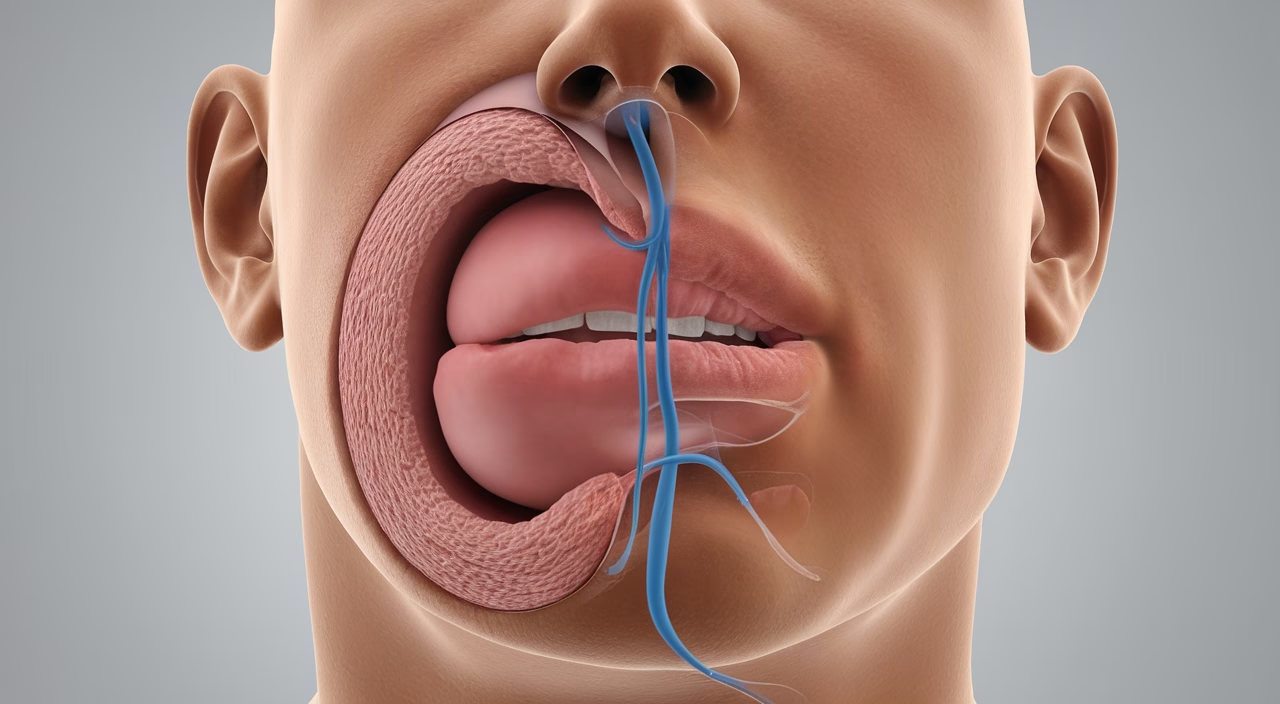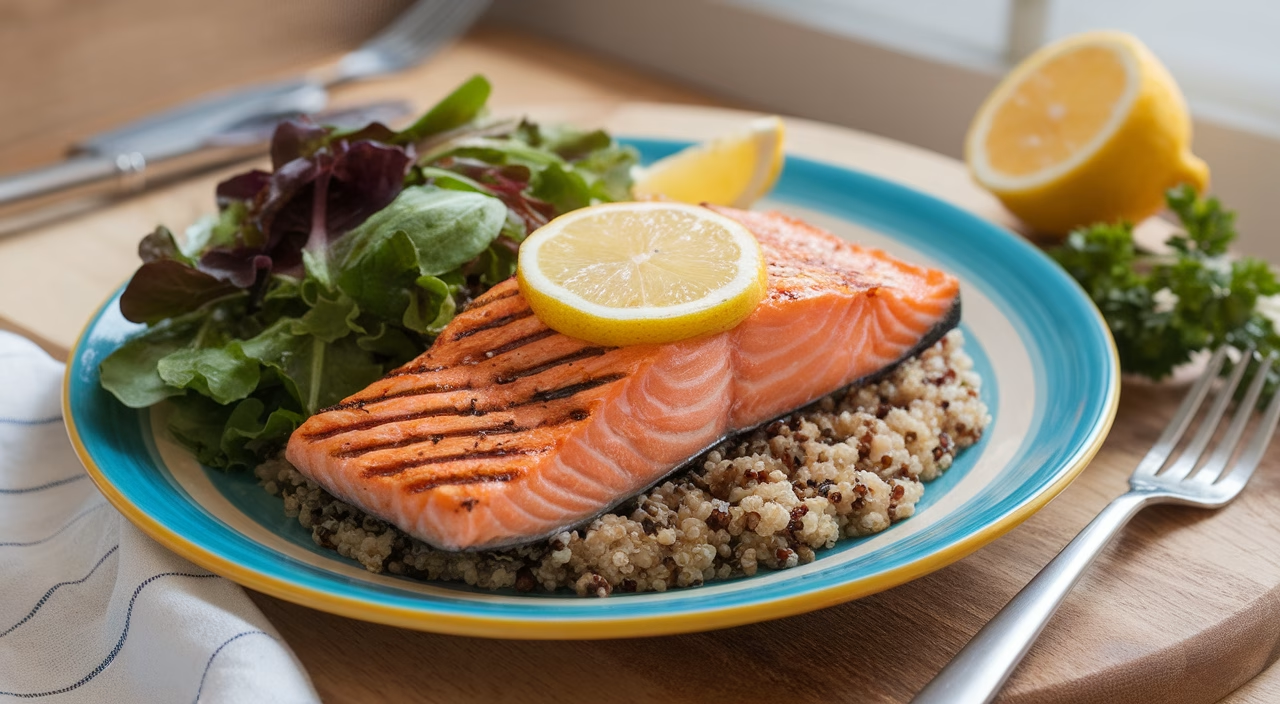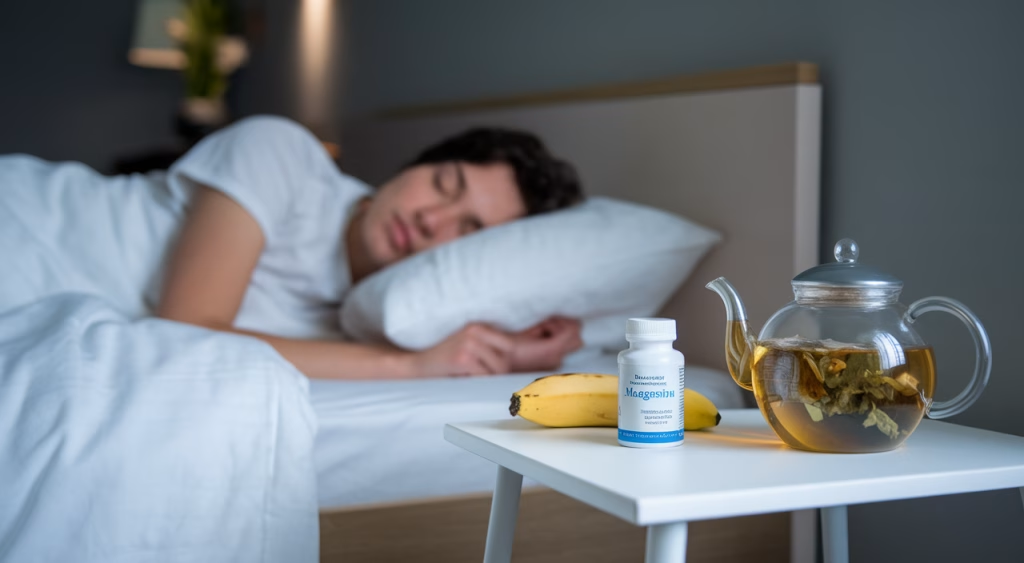Can changing your eating habits really help with obstructive sleep apnea?
Absolutely! Your eating habits and obstructive sleep apnea are more connected than you might think. When you choose nutrient-dense foods, you actively reduce inflammation, oxidative stress, and excess weight — the three main culprits that worsen sleep quality and increase airway blockages during sleep.
TL;DR: Why Your Diet Matters for Better Sleep
- Food influences sleep quality: The right healthy meal choices for better sleep promote deeper, uninterrupted rest.
- Eating habits and obstructive sleep apnea: Excess sugar and processed foods worsen OSA severity.
- Advanced Glycation End Products (AGEs): Common in fried & processed foods — linked to inflammation and snoring.
- Top anti-snoring meals: Leafy greens, fish, nuts, and magnesium-rich foods help open airways naturally.
- Sustainable change: A sleep-friendly diet plan won’t just help your nights — it supports all-day energy too.
Importance of Diet in Sleep Quality
Understanding Obstructive Sleep Apnea
Obstructive Sleep Apnea (OSA) happens when throat muscles intermittently relax and block your airway during sleep. This leads to repeated awakenings, poor oxygenation, and often, loud snoring. Weight gain, inflammation, and oxidative stress are primary contributors to this condition — and all are modifiable through your eating habits and obstructive sleep apnea management.
Ever noticed how heavy meals or late-night snacks interrupt your sleep? That isn’t just indigestion; it’s your body fighting against a misaligned digestive-sleep rhythm. More importantly, poor sleep quality worsens cravings for high-sugar and high-fat foods — which in turn worsen OSA. We need to break this cycle together.
Impact of Advanced Glycation End Products on Sleep
Advanced Glycation End Products (AGEs) form when fats or proteins combine with sugars in your bloodstream. They’re also abundant in grilled meats, fast food, and packaged snacks — foods many of us rely on during busy weeks.
AGEs are troublemakers for your sleep quality. They increase oxidative stress and inflammation, narrowing airways and making sleep interruptions more frequent. Reducing AGEs through fresh, minimally processed foods can calm internal inflammation and help your airways remain open through the night.
Top Foods to Improve Sleep Quality
Nutrient-Rich Options for Better Sleep
If you’re serious about tackling OSA through diet, focus on healthy meal choices for better sleep rich in anti-inflammatory compounds, fiber, and essential sleep-supporting vitamins like magnesium, B6, and tryptophan. These nutrients encourage melatonin production and relax muscles for deeper sleep.
Here are five healthy meal choices for better sleep that can transform your nights:
| Meal | Ingredients | Sleep Quality Benefit |
|---|---|---|
| Leafy green stir-fry with salmon | Spinach, kale, grilled salmon, olive oil | Magnesium and omega-3s reduce inflammation and aid relaxation |
| Slow-cooked lentil soup | Lentils, carrots, onions, turmeric | Rich in B6 and fiber; removes excess fluid from airway |
| Chia yogurt parfait | Plain Greek yogurt, chia seeds, tart cherries | Tryptophan and melatonin promote better sleep onset |
| Oats with bananas and pumpkin seeds | Oats, sliced bananas, pumpkin seeds, cinnamon | Regulates serotonin; high in muscle-relaxing magnesium |
| Grilled turkey quinoa bowl | Ground turkey, quinoa, avocado, black beans | Protein-packed and naturally high in sleep-inducing tryptophan |
Foods to Avoid for Reducing Snoring
Sometimes, what you leave off your plate matters more than what you put on it. Chronic snoring — especially in those with OSA — is often aggravated by foods to avoid for snoring that increase mucus, swell airway tissues, or contribute to bloating and acid reflux.
Here’s what to avoid to reduce snoring and improve your sleep quality:
- Dairy before bed: Can thicken mucus and block airways.
- Fried or grilled meats: High in AGEs and saturated fats.
- Refined carbs and sugars: Trigger weight gain and inflammation.
- Caffeine and alcohol: Disrupt melatonin and muscle tone of the airway.
Need a simple rule? Limit anything that’s greasy, overly processed, or makes you feel bloated. These foods don’t just threaten your waistline — they narrow your breath when it matters most: while you’re asleep.
Healthy Eating Tips for Preventing Obstructive Sleep Apnea
Sleep-Friendly Diet Plan Strategies
Adopting a sleep-friendly diet plan doesn’t mean giving up your favorite dishes — it means refining how, what, and when you eat. Here are simple, sustainable tips for preventing obstructive sleep apnea naturally through nutrition:
- Time your meals: Finish eating at least 2-3 hours before bed to reduce reflux and improve sleep quality.
- Hydrate wisely: Drink water early in the day, and slow fluids after dinner to avoid late-night bathroom trips.
- Pack your plate with color: The more veggies and fruits you see, the more antioxidants you’re getting to fight oxidative stress.
- Lean protein love: Choose turkey, tofu, legumes — they soothe hunger without burdening digestion late at night.
Cost Guide: Eating Healthy for Better Sleep
| Budget | Meal Planning Tips | Approximate Weekly Cost (USD) |
|---|---|---|
| Low-End | Seasonal produce, dried beans, bulk grains | $35–$50 |
| Mid-Range | Mix of fresh fish, organic eggs, local greens | $60–$90 |
| High-End | Organic, pre-portioned meal kits, specialty items | $100–$150 |
Conclusion
Food is more than fuel; it’s medicine — especially when you’re dealing with poor sleep quality and obstructive sleep apnea. With intentional changes in your nutrition, including cutting back on advanced glycation end products, boosting antioxidants, and avoiding inflammatory foods, you empower your body to rest, repair, and breathe better.
What you eat directly influences the quality of your night. So, start small with these healthy meal choices for better sleep, stay consistent, and notice how even a single nutrient-packed meal can transform how deeply — and peacefully — you sleep.
Frequently Asked Questions
What foods make snoring worse?
Dairy, alcohol, fried meats, and high-sugar foods often increase mucus or relax airway muscles, intensifying snoring and reducing sleep quality.
Can losing weight from diet reduce sleep apnea?
Yes. Weight loss from healthier eating habits and obstructive sleep apnea management can significantly reduce airway compression and snoring in those with OSA.
Is melatonin-rich food better than supplements?
In many cases, yes. Foods like tart cherries and almonds provide natural melatonin with other sleep-boosting nutrients for better sleep quality.
When should I stop eating before bed?
Aim to finish eating 2–3 hours before bedtime to avoid reflux and allow sleep hormones to rise naturally for optimal sleep quality.
How do AGEs affect my sleep?
Advanced Glycation End Products promote inflammation and oxidative stress, both of which can worsen OSA and restless sleep.
Can anti-inflammatory foods really stop snoring?
They help reduce tissue swelling in the airways, which in turn minimizes snoring for many individuals and improves overall sleep quality.
Should I avoid carbs at night?
Not necessarily. Complex carbs in moderation can support serotonin and melatonin production for better sleep quality.





